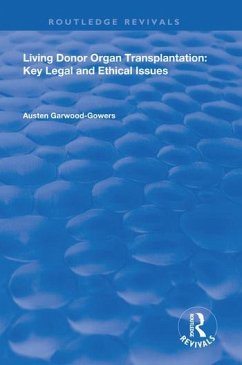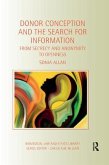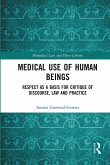This book was originally published in 1999. When one or more essential organs failed, the consequence used to be death. However, conventional medicine has developed artificial means of extending life, the most successful of which is transplantation. The most common form of organ to be transplanted is a kidney which will, on average, function for about a decade in its recipient. Organ transplantation as a whole is widely practiced in most countries. However, few can procure enough organs to meet demand. Many people who are suitable for a transplant die without getting one. Many kidney patients can access and stay alive on dialysis until a suitable organ becomes available. However, even here, sufficiency of organs would be beneficial because lesser reliance on dialysis would reduce healthcare costs and be better for patient quality of life. This invaluable book shows that in the light of current practice and attitudes, increasing living donor transplantation (LDT) levels is feasible. It is one of the few works to systematically analyse the ethical and legal issues involved in LDT use in the light of empirical evidence, including new data derived from a unique programme of interviews and questionnaires with transplant professionals, living donors and recipients. Readers are led to an understanding of when LDT is ethically and legally acceptable and to the strong case for using it much more extensively.
Bitte wählen Sie Ihr Anliegen aus.
Rechnungen
Retourenschein anfordern
Bestellstatus
Storno









